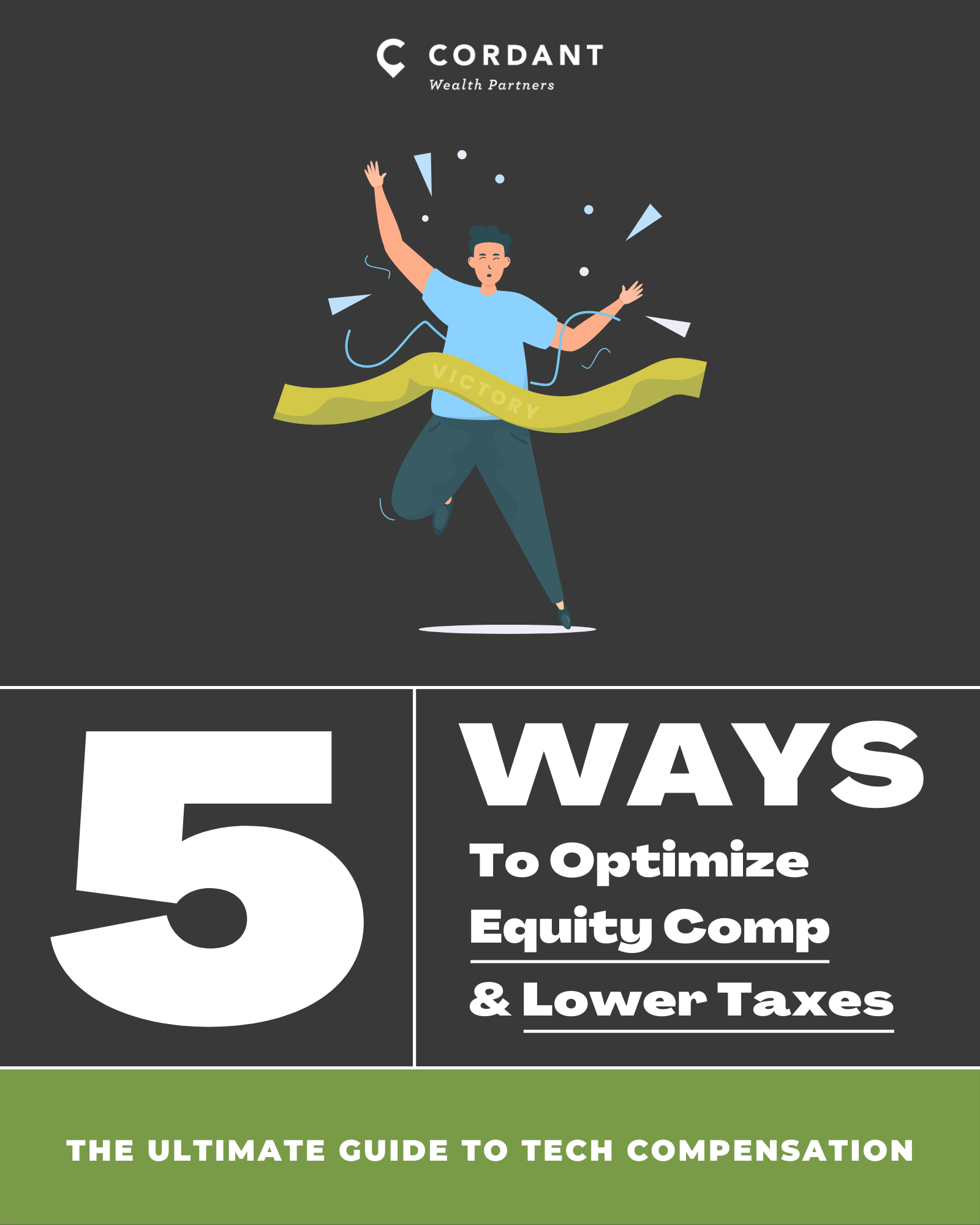Many of our clients work in the technology industry, so we’re familiar with all different types of equity compensation plans. We’ve recently written about two popular forms of equity compensation plans: ESPP and RSUs (here and here). In this post, we are going to look at another popular form of equity compensation—the stock option plan. Specifically, Incentive stock options or ISOs.
Key takeaways:
- Options allow shares to be purchased at a future date for a predetermined price.
- Unlike RSUs which always have value, Options only have value above their strike price.
- ISOs differ from NQSO (Non-qualified Stock Options) in that your gain on the investment is eligible to be taxed at lower long-term capital gains rates.
Like we did with ESPP and RSUs we want to look for each type of compensation’s biggest strategic advantage so that we can exploit it to our benefit.
Equity Compensation Strategic Advantages
ESPP: Buying the stock at a discount (e.g., would you pay $85 for a hundred-dollar bill?)
RSUs: Like a cash bonus with upside
Key advantages of ISOs are:
- The right to buy shares at a set price but delay the decision until a future date
- Potentially favorable tax treatment
How ISOs work
ISOs give employees the option to buy shares in their company at a later date for a set price today. The price that’s set today is called the strike price. If your company’s stock price is above the strike price, your shares “in-the-money” and if below the strike price “out-of-the-money.” Your options are only valuable if your stock’s value is above the strike price at the expiration of your option. However, with an option, you get to defer the decision to exercise until a future date, allowing you to see where the share price is at the time.
RSUs, on the other hand, always have value (except in the case of a company bankruptcy). You can think of RSUs as an option with a $0 strike price. As a general rule of thumb for anyone evaluating a job offer including RSUs or Options, 1 RSU is equivalent to 3 to 4 options.
Key Dates
There are three key dates you must know when it comes to ISOs. These are:
- Grant date: Date you are given the options
- Vesting date: When you are eligible to exercise the shares; typically based on tenure, but it could be performance-based as well.
- Expiration date: The date by which you must exercise your option to buy shares
How to exercise your options
Of the key dates listed above, the expiration date is the most critical. If you fail to exercise an option, even if it’s “in-the-money”, it will expire worthless. For example, if your companies’ stock is worth $10/share at expiration and you have an option with a $2 strike price, you will forgo $8 of value per option if you fail to exercise by the expiration date. Suppose you held 1,000 options, that’s $8,000 of value you’ve missed.
Exercising your option requires either coming up with the cash to buy the shares at the strike price ($2,000 in the scenario above) or doing what’s called a cashless exercise. In this scenario, all (or enough) shares are sold to cover the strike price.
So instead of paying $2,000 for the shares and then having shares worth $10,000, through a cashless exercise, your shares would be simultaneously bought at the strike price and sold at the current market price—In this case, netting you $8,000 in cash.
Taxes
The value of your ISOs is either taxed at ordinary income tax rates or if certain criteria are met, more favorable long-term capital gains tax rates. The criteria to qualify this more favorable tax treatment, called a “qualifying disposition,” is as follows:
- The shares are sold at least two years from the grant date and
- At least one year from the exercise date
An Example
| Qualifying Disposition | Dis-qualifying Disposition | |
| Strike price | $2 | $2 |
| Market Value at exercise | $10 | $10 |
| Gain on 1,000 shares | $8,000 | $8,000 |
| Income Taxes (33%) | $0 | $2,640 |
| Capital Gains Taxes (15%) | $1,200 | $0 |
| Net Proceeds | $6,800 | $5,360 |
Conclusion
In summary, ISOs are a valuable piece of tech employee compensation plans. Make sure you are armed with the knowledge to make the most of them, and as always, if we can be of any help, get in touch.


